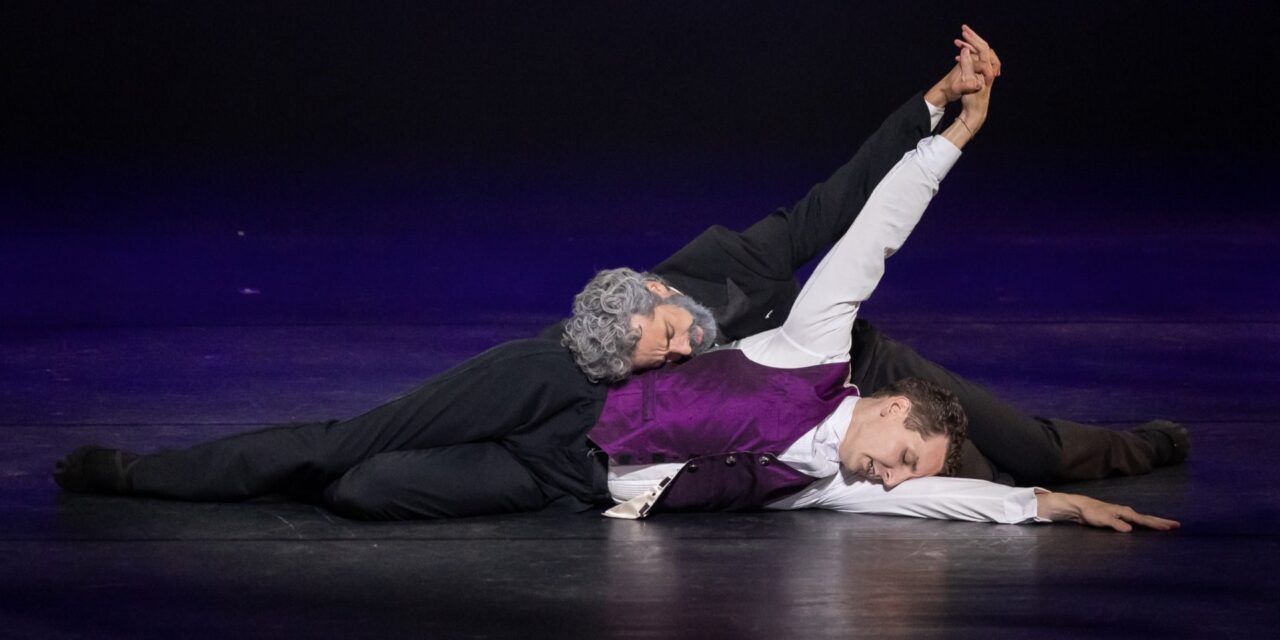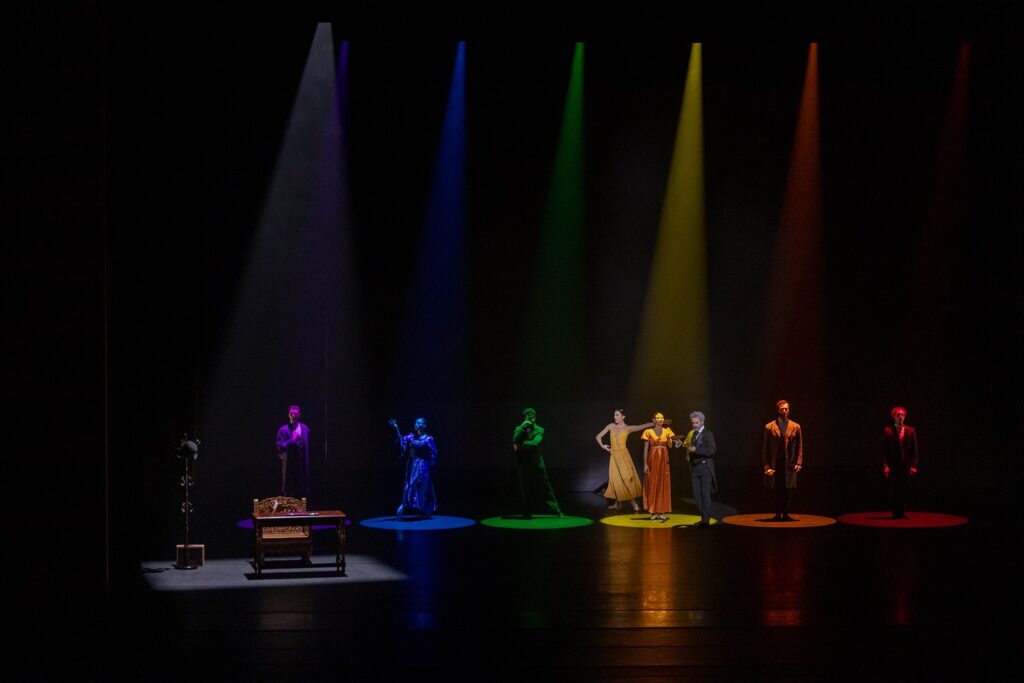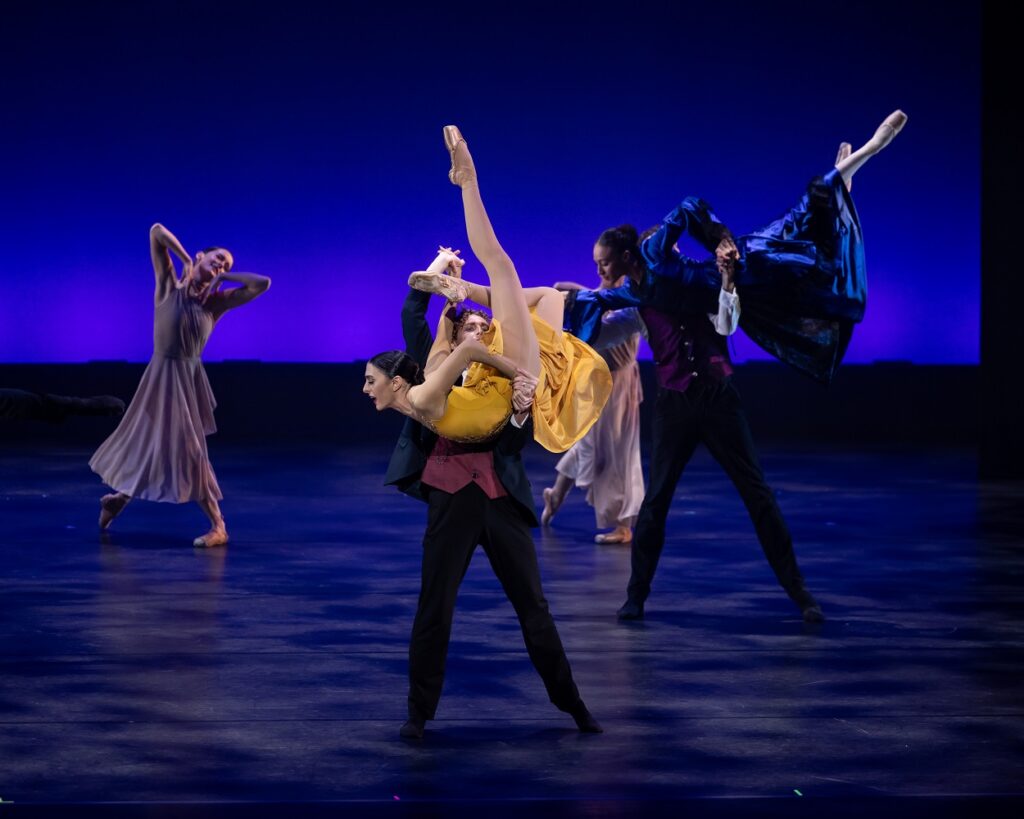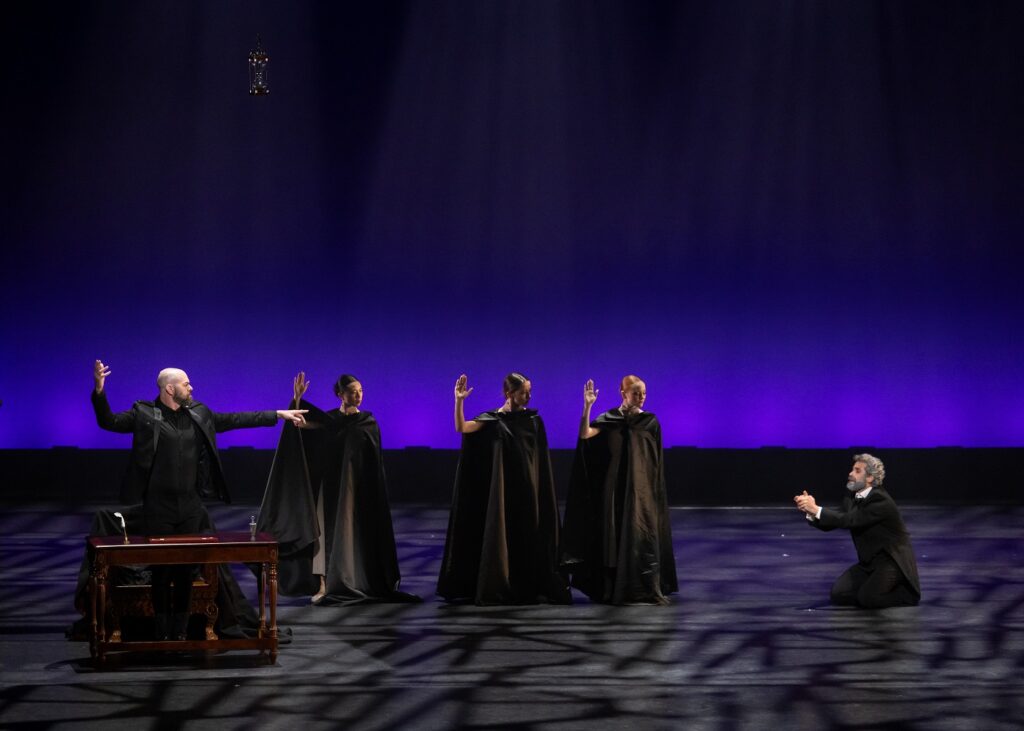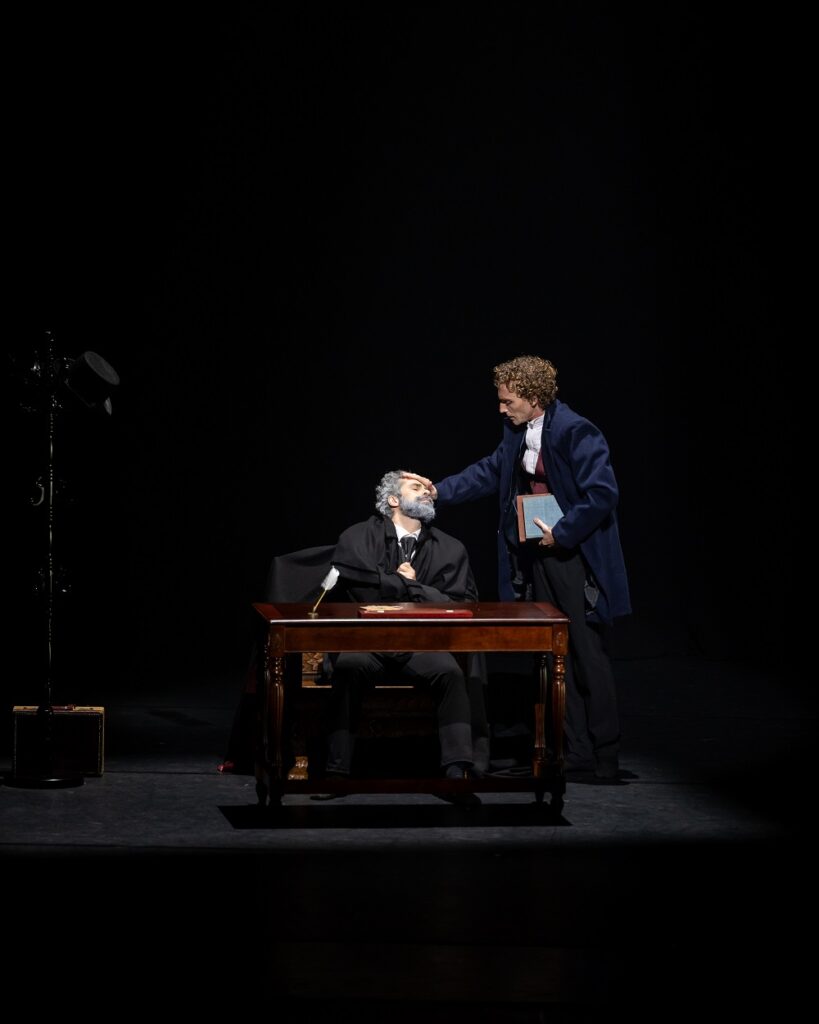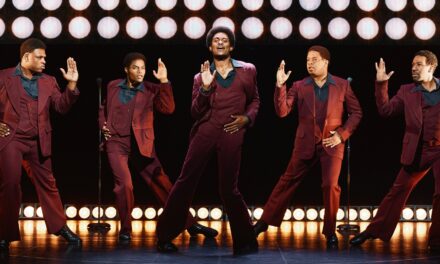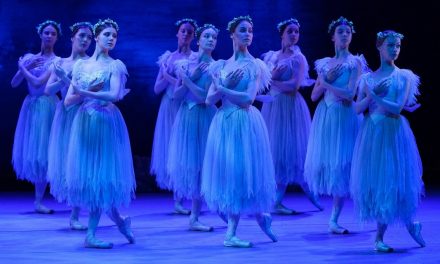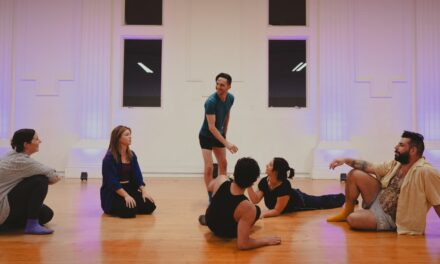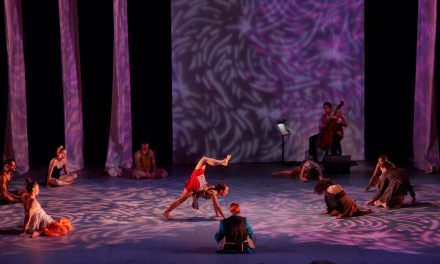Appearing on September 5, 2025 at the Musco Center of the Arts, the heart of this production, this ballet, is the question of how did Tchaikovsky die, and why? This is the crux of the work and through two acts and multiple episodes of Tchaikovsky’s music choreographed by Tara Ghassemieh and Vitor Luiz we find out. Online and through various research engines it is the Party Line that we cannot know how he died as different biographers argue over the role that Tchaikovsky’s homosexuality played in both his personal and professional life. Here, the message is clear. Homosexuality was such an infamous crime in 19th Century Russia that through Government channels Tchaikovsky was made to commit suicide by drinking poison. His official cause of death by Soviet authorities was attributed to Cholera. And this by reason of his drinking a glass of water that was not boiled in a nearby restaurant. One wonders how many other patrons of this restaurant on this day at this time also expired by Cholera? Consider the fate of Oscar Wilde, who having been found guilty of “gross indecency” in 1895 due to his relationships to other men, particularly Lord Alfred Douglas, was sentenced to two years hard labor and died destitute and in exile in Paris. And the fate of Alan Turing, who also being found guilty of “gross Indecency” was subject to chemical castration and consequently committed suicide by cyanide poisoning in 1954. You will forgive me for being skeptical, but these examples only reinforce the very real possibility that Tchaikovsky was made to drink poison and end his life due to his homosexuality as it threatened the Soviet Government’s ideal of morally upright Artistic citizen.
This ballet is “disobedient” because the creators and producers “refuse to let silence, censorship, or fear erase artists — then or now. Public arts funding may be vanishing, but our conviction is not” (program note). They will not censor his life and loves out of fear of reprisal. They state outright that a Court of Honor condemned Tchaikovsky for his sexual orientation. This ballet is made of a series of remembrances attached to certain letters from various people throughout his life. It begins and ends with him nine days after the premier of his Sixth Symphony, the Pathétique.
The structure of the ballet is strong and through these interwoven memories we comprehend the extent of Tchaikovsky’s struggles with his homosexuality. The choreography is grand and certainly suits the subject material. There is great passion and drama in every movement and one of the characters by his side throughout is his Muse, who represents his music speaking to him and through him all along. This character is performed by Tara Ghassemieh, a Persian-American artist and accomplished ballet dancer trained at the Orange County Dance Center. She is very strong on pointe and has substantial technical chops. Her portrayal was lovely. Opposite her as Pyotr Ilyich Tchaikovsky was Vitor Luiz, an internationally acclaimed ballet dancer from Brazil. He had the gravitas necessary for the role and brought a grandeur to Tchaikovsky’s suffering. I was reminded of MacMillan’s “Mayerling” in terms of dramatic portrayal and intensity. They have with them a group of extremely capable dancer/performers who fill in all the other characters throughout Tchaikovsky’s life. So much of the music is filled out in massive grandiosity that it is difficult for one person, or even a small group to fully embody its power onstage. One needs a corps de ballet for that, for example in ‘Swan Lake”. However, they did justice to the temperament of the music and the scenes in his life which it helped define.
The lighting by Lonnie Alcaraz was gorgeous and did its duty in helping to imbue scenes with the appropriate mood or tension. The costumes were lovely and anchored the story in our imagination at the late 1800’s. The Muse-ic costume for Ghassemieh was a beautiful flowing skirt and bodice which changed color slightly under the lights. It captured the whimsical part of her being and lent itself perfectly to the elusive nature of inspiration. Unfortunately, there was no Costume credit in the program.
I want to add a word about the reason for this ballet. I want to congratulate Intuitv Artship for taking a stand against the defamation and condemnation of Artists and their Art due to their sexual orientation. Our current political arena is full of attacks against marginalized groups based on their sexual orientation, specifically the LGBTQ+ community, Drag Artists and Intersex individuals. “Tennessee, Texas and Montana all passed laws which would specifically ban drag artists from performing in certain public spaces – the latest part of a conservative culture war that has seen books banned from schools and libraries around the US and rights stripped from the LGBTQ+ community. Sep 19, 2023” (Wikipedia). From long before 1885 and Tchaikovsky and Wilde, artists were vilified for their deviant/artistic lives. So perhaps it is no surprise that this fervor has taken hold once more in the public sphere. “The American Civil Liberties Union (ACLU) is tracking 575 anti-LGBTQ+ state bills so far this year, most of which target transgender people. One hundred and five of those bills have failed and 54 have passed into law. Those newly passed laws include restrictions on trans students’ ability to use school restrooms or play school sports, Pride flag bans on government property, gender-affirming care restrictions, and bans on updating personal identity documents like driver’s licenses and birth certificates.” (The 19th News). Adolf Hitler banned certain Artists and Art as “Degenerate”. Our own President has just done the same through the Smithsonian Institute. Scapegoating Artists is an old tried and true political ploy which unfortunately seems to work in every age of mankind. This Love Letter to Tchaikovsky is a real one. It is far too late to do him any good, but it certainly reminds us that the Artist is after all only Human. And that the gamut of Human sexuality is an integral part of that Artist and their Art. You cannot separate them.
Cast: David Prottas, Skylar Campbell, Marshall Whiteley, Victoria Jenkins, Daniel Deivison, Rachel Hutsell, Maté Szentes, Chad Michael Hall, Jackie Oakley, Mackenzie Davis, Natalie Palmgren, Katie Choi, Eduard Sargsyan, Sheila Mann Buchanan.
To learn more about the Intuitv Artship, please visit their website.
For more information about the Musco Center for the Arts, please visit their website.
Written by Brian Fretté for LA Dance Chronicle.
Featured image: Intuitv Artship – Vitor Luiz and Mate Szentes in “Tchaikovsky: A Love Letter” – Photo by Sam Zauscher.

